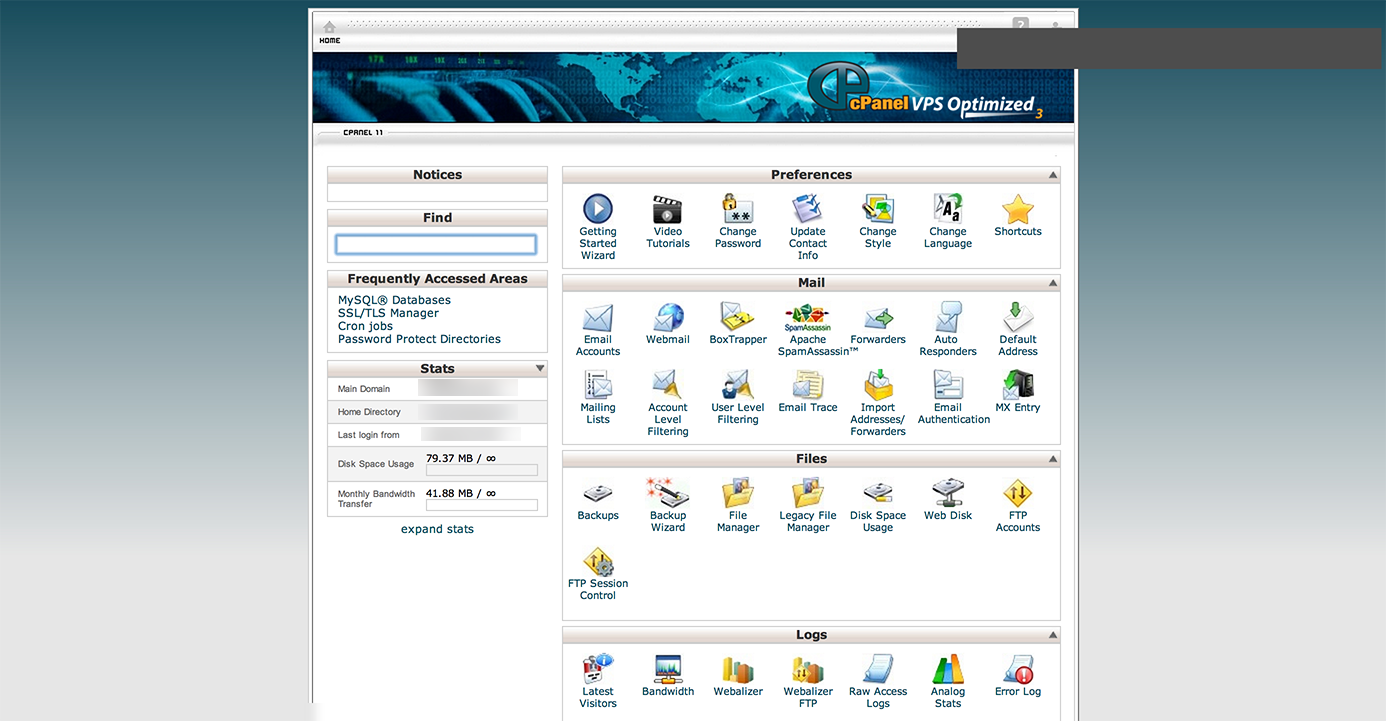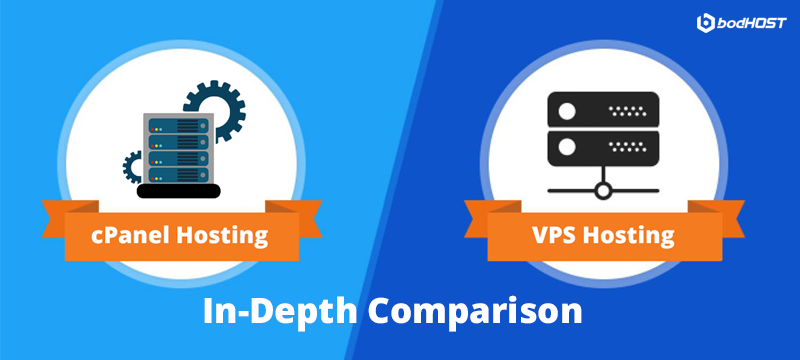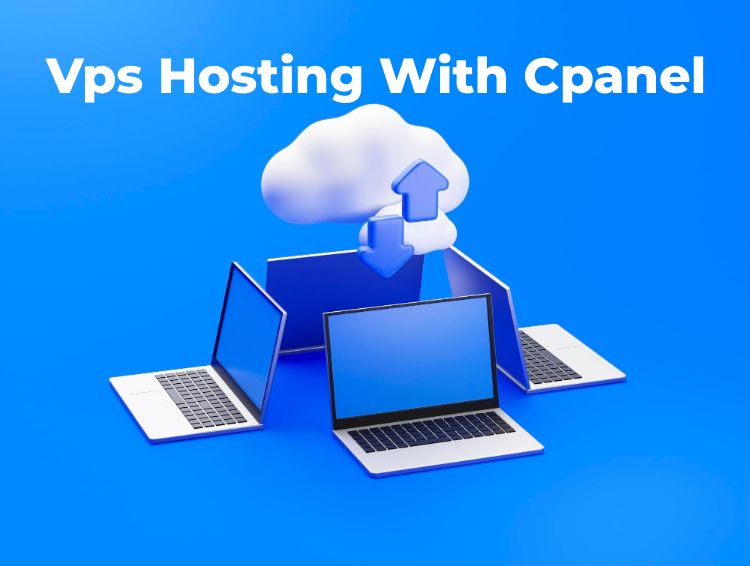If you manage a website, you need reliable hosting. VPS hosting with cPanel offers a great solution.
VPS, or Virtual Private Server, hosting combines the affordability of shared hosting with the power of dedicated hosting. Adding cPanel, a user-friendly control panel, makes managing your server a breeze. With cPanel, you can handle tasks like setting up email accounts, managing domains, and installing software with just a few clicks.
This makes it perfect for both beginners and experienced users. VPS hosting with cPanel ensures your site runs smoothly, securely, and efficiently. In this blog, we’ll explore the benefits and features of VPS hosting with cPanel, helping you decide if it’s the right choice for your website needs.

Credit: www.solvps.com
Introduction To Vps Hosting
Exploring the world of web hosting can be overwhelming. Among the many options, VPS Hosting stands out for its balance of performance and cost. Understanding its benefits can help you make an informed decision.
What Is Vps Hosting?
VPS Hosting stands for Virtual Private Server Hosting. It uses virtualization technology to divide a physical server into multiple virtual servers. Each virtual server acts independently. You get dedicated resources without sharing them with others.
Benefits Of Vps Hosting
There are several key benefits to using VPS Hosting:
- Improved Performance: You get dedicated resources, ensuring better performance.
- Scalability: Easily upgrade your resources as your website grows.
- Enhanced Security: Isolated environment offers greater security compared to shared hosting.
- Cost-Effective: More affordable than dedicated hosting with similar benefits.
Here’s a quick comparison of VPS Hosting and other hosting types:
| Hosting Type | Resources | Cost | Security |
|---|---|---|---|
| Shared Hosting | Shared | Low | Low |
| VPS Hosting | Dedicated | Moderate | High |
| Dedicated Hosting | Dedicated | High | Very High |
Choosing VPS Hosting with cPanel further simplifies management. It provides an intuitive interface to handle your server tasks with ease.

Credit: virtualservers.co.za
Understanding Cpanel
Understanding cPanel is crucial for managing VPS hosting effectively. It simplifies server management tasks. This tool is user-friendly and powerful. Many hosting providers offer cPanel with their VPS packages. Let’s dive into what cPanel is and its key features.
What Is Cpanel?
cPanel is a web-based control panel. It helps manage websites and servers. Users interact with a graphical interface. It makes complex tasks simple. No need for technical expertise. cPanel is widely used in the hosting industry. It supports various operating systems.
Key Features Of Cpanel
cPanel offers many features. It provides file management tools. Users can upload, download, and edit files. It includes email management. Create and manage email accounts easily. cPanel has domain management features. Add and manage multiple domains from one place. Security tools are also included. Protect your website with SSL certificates and firewalls.
Backup and restore options are available. Regular backups ensure data safety. cPanel also supports databases. Manage MySQL and PostgreSQL databases effortlessly. It offers analytics tools too. Monitor website traffic and performance.
cPanel integrates with many applications. Install popular software like WordPress with a few clicks. These features make cPanel a valuable tool for managing VPS hosting.
Vps Hosting With Cpanel
VPS Hosting with cPanel is a powerful combination for website management. It offers flexibility, control, and ease of use. This blend of virtual private server (VPS) capabilities with the user-friendly cPanel interface is ideal for both beginners and experienced users.
Why Combine Vps With Cpanel?
Combining VPS with cPanel provides several benefits that enhance the web hosting experience. Here are the key reasons:
- Ease of Use: cPanel offers an intuitive graphical interface. Even those with limited technical knowledge can easily manage their websites.
- Enhanced Control: VPS gives you dedicated resources and root access. You have full control over your server environment.
- Scalability: VPS allows you to scale resources as your website grows. cPanel makes managing these resources straightforward.
- Security: VPS provides isolated environments for each user, enhancing security. cPanel includes built-in security features to protect your data.
Advantages Of This Combination
Using VPS Hosting with cPanel offers multiple advantages:
- Performance: VPS ensures your website has dedicated resources. This leads to better performance and faster loading times.
- Customization: With root access on VPS, you can customize your server settings. cPanel supports various applications and scripts, making it versatile.
- Cost-Effective: VPS is more affordable than a dedicated server. cPanel simplifies management, reducing the need for technical expertise.
- Backup and Restore: cPanel provides easy backup and restore options. This ensures your data is always safe and can be recovered quickly.
- Support: Both VPS and cPanel come with robust support options. You can resolve issues quickly, ensuring minimal downtime.
| Feature | VPS | cPanel |
|---|---|---|
| Control | Full root access | Graphical interface |
| Scalability | Easy to scale | Manageable resources |
| Security | Isolated environments | Built-in security tools |
| Performance | Dedicated resources | Efficient management |

Credit: www.bodhost.com
Setting Up Vps Hosting With Cpanel
Setting up VPS hosting with cPanel can seem daunting. But with the right steps, it becomes manageable. cPanel simplifies server management with its user-friendly interface. Follow these steps to get your VPS hosting with cPanel up and running smoothly.
Initial Server Configuration
First, start with your VPS provider. After purchasing a VPS plan, access your server’s control panel. Set a strong root password. This ensures your server remains secure. Update the server’s software packages. Use commands like yum update or apt-get update. This keeps your server up to date.
Installing Cpanel
Before installing cPanel, ensure your server meets the requirements. cPanel needs a fresh installation of CentOS, CloudLinux, or RHEL. Log in to your server via SSH. Use a terminal or an SSH client like PuTTY. Run the cPanel installation command: cd /home && curl -o latest -L https://securedownloads.cpanel.net/latest && sh latest.
The installation process may take some time. Once complete, you can access cPanel via your web browser. Use your server’s IP address followed by :2087 (e.g., https://your-server-ip:2087). Log in with the root username and password. Follow the on-screen setup wizard to complete the configuration.
Managing Websites With Cpanel
Managing websites with cPanel is both simple and efficient. This control panel offers a user-friendly interface. It helps users handle various tasks with ease. From creating domains to managing files, cPanel covers it all.
Creating And Managing Domains
With cPanel, setting up domains is straightforward. Follow these steps:
- Log in to your cPanel account.
- Navigate to the Domains section.
- Select Addon Domains to add a new domain.
You can manage subdomains and parked domains too. The interface is intuitive. It guides users through the process. Here’s what you can do:
- Create and delete domains
- Manage DNS settings
- Redirect domains
Managing Files And Databases
cPanel simplifies file management. Users can upload, delete, and organize files. Use the File Manager tool. It works like a basic file explorer. Here’s a quick guide:
| Action | Tool |
|---|---|
| Upload files | File Manager |
| Delete files | File Manager |
| Backup files | Backup Wizard |
Database management is also easy. Use the MySQL Database Wizard. It helps create and manage databases. Follow these steps:
- Go to the Databases section in cPanel.
- Select MySQL Database Wizard.
- Follow the prompts to create a new database.
Manage existing databases using phpMyAdmin. It offers a visual interface. You can:
- Create and delete tables
- Run SQL queries
- Import and export data
cPanel’s features make website management simple. Users can focus on their content. The technical tasks are handled efficiently.
Enhancing Security With Vps And Cpanel
Enhancing security is a critical aspect of managing any website. With VPS hosting and cPanel, you can significantly improve your website’s security. These tools provide a range of features that protect your data and ensure smooth operation.
Security Features In Vps
VPS hosting offers enhanced security by isolating your resources from other users. This isolation prevents potential threats from affecting your site. Key security features include:
- Dedicated Resources: Ensures your site uses its own CPU, RAM, and storage.
- Root Access: Allows full control over your server’s security settings.
- Custom Firewalls: Lets you configure firewalls according to your specific needs.
- Regular Backups: Helps in restoring data quickly if needed.
With these features, your website can operate securely and efficiently.
Cpanel Security Tools
cPanel offers several tools to enhance your website’s security. These tools are user-friendly and effective. Key cPanel security tools include:
- SSL/TLS Management: Allows you to install and manage SSL certificates easily.
- IP Blocker: Enables you to block IP addresses that pose a threat.
- Hotlink Protection: Prevents other sites from stealing your bandwidth.
- Leech Protection: Stops users from sharing their login credentials publicly.
These tools ensure that your website remains safe from various threats.
Both VPS hosting and cPanel offer robust security features. They protect your website and provide peace of mind.
Performance Optimization
Performance optimization is crucial for any website. It ensures fast loading times and a smooth user experience. VPS hosting with cPanel offers tools to enhance your site’s performance. Let’s dive into two key aspects:
Resource Allocation In Vps
VPS hosting allows dedicated resources for your website. This means you get a portion of a server’s CPU, RAM, and storage. Unlike shared hosting, your site’s performance is not affected by other websites. You have more control over resources, leading to better performance.
Here’s a quick comparison between shared hosting and VPS hosting:
| Features | Shared Hosting | VPS Hosting |
|---|---|---|
| Resource Allocation | Shared | Dedicated |
| Performance | Variable | Consistent |
| Control | Limited | High |
With VPS, you can allocate resources based on your website’s needs. This flexibility helps in optimizing performance.
Optimizing Websites With Cpanel
cPanel is a powerful tool for website management. It offers several features to optimize your website. Here are some key features:
- File Management: Easily manage and organize your website files.
- Database Management: Optimize databases for faster query responses.
- PHP Configuration: Adjust PHP settings to improve performance.
- Cache Settings: Enable caching to reduce load times.
Using cPanel, you can also monitor resource usage. This helps in identifying performance bottlenecks. Regular monitoring and adjustments ensure your website runs smoothly.
In summary, VPS hosting with cPanel offers robust tools for performance optimization. Dedicated resources and easy management lead to a faster, more reliable website.
Backup And Recovery
Backup and recovery are crucial elements in managing your VPS hosting with cPanel. Regular backups ensure that your data is safe from unexpected events. Efficient recovery options help you get back online quickly. Let’s dive into how you can set up and manage backups, and efficiently restore data using cPanel.
Setting Up Backups In Cpanel
Setting up backups in cPanel is straightforward. First, log in to your cPanel account. Look for the “Backup” option under the “Files” section. Click on it. You will see several options for backup, including full backups and partial backups. Choose the option that suits your needs. For a complete safety net, select full backups. This will copy all your files, databases, and email accounts.
Next, choose the destination for your backup. You can store it locally or send it to a remote server. Local backups are easier to access. Remote backups offer extra safety. After selecting the destination, initiate the backup process. cPanel will notify you once the backup is complete. Regularly schedule backups to keep your data up-to-date.
Restoring Data Efficiently
Restoring data in cPanel is also simple. Navigate to the “Backup” option in your cPanel account. Here, you will find the “Restore” section. You can restore files, databases, or email accounts. To restore a file, upload the backup file from your computer. cPanel will handle the rest.
Restoring a database is similar. Choose the “Restore MySQL Database” option. Upload the backup file, and the database will be restored. For email accounts, select the “Restore Email Accounts” option. Follow the same steps. Make sure to check your restored data for accuracy. This ensures everything is back to its original state.
Backup and recovery in cPanel are user-friendly and efficient. With regular backups, your data remains secure. If something goes wrong, you can quickly restore it. This keeps your website running smoothly and minimizes downtime.
Troubleshooting And Support
Managing a VPS hosting with cPanel can be challenging. Problems can arise, making it vital to have reliable troubleshooting and support. This section will guide you through common issues and solutions. It will also direct you to places where you can get help.
Common Issues And Solutions
Users face various problems with VPS hosting and cPanel. Below are some common issues and their solutions:
- Server Downtime: Restart the server from your cPanel dashboard. Check for hardware issues.
- Slow Loading Time: Optimize images. Use caching. Check for high resource usage.
- Email Issues: Check DNS settings. Verify email configuration in cPanel.
- Database Errors: Repair database from cPanel. Check database connection settings.
Where To Get Help
If you face issues beyond your control, here are some support options:
| Support Option | Description |
|---|---|
| cPanel Documentation | Official guides and tutorials for troubleshooting. |
| Hosting Provider Support | Contact your hosting provider for technical assistance. |
| Community Forums | Join forums like StackOverflow for community help. |
| Professional Services | Hire experts for complex issues. |
By understanding common problems and knowing where to get help, you can manage your VPS hosting with cPanel more effectively. Proper support ensures your server runs smoothly, keeping your website online and efficient.
Frequently Asked Questions
What Is Vps Hosting With Cpanel?
VPS hosting with cPanel provides a virtual private server managed through the cPanel control panel. It offers flexibility, control, and user-friendly features.
Why Choose Cpanel For Vps Hosting?
CPanel is intuitive, making server management easier. It provides a user-friendly interface for managing websites, emails, and databases efficiently.
How Secure Is Vps Hosting With Cpanel?
VPS hosting with cPanel is highly secure. It offers robust security features, including firewalls, DDoS protection, and regular updates.
Can Beginners Use Cpanel For Vps Hosting?
Yes, cPanel is designed for users of all levels. Its intuitive interface simplifies server and website management for beginners.
Conclusion
Choosing VPS hosting with cPanel offers numerous benefits. It ensures easy management. You get a user-friendly interface. Perfect for beginners and experts alike. Experience enhanced security features. Enjoy reliable performance for your websites. Scalability becomes a breeze. Your website grows without hassle.
Consider VPS hosting with cPanel for seamless control. Make the switch today. Your web experience will thank you.







